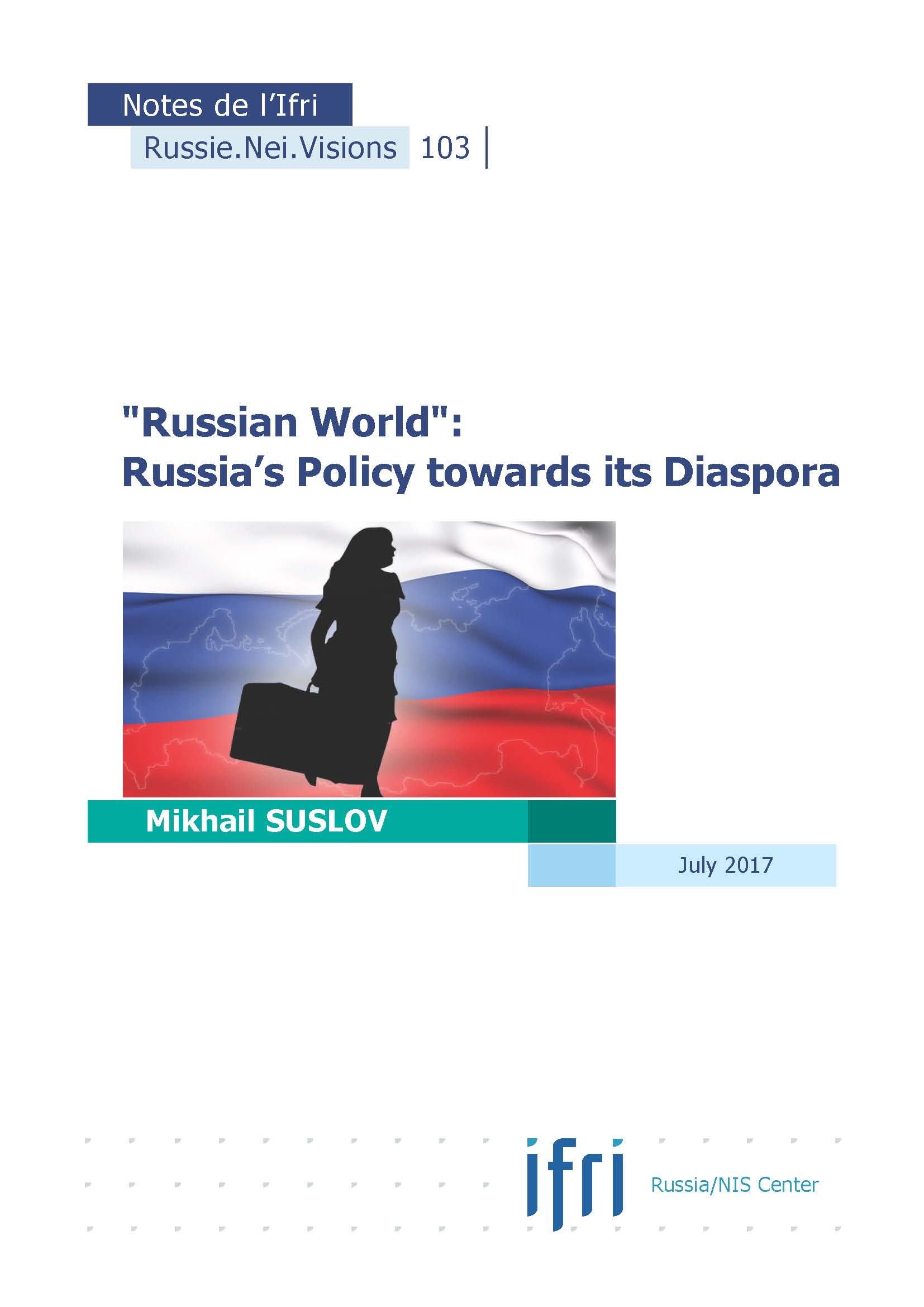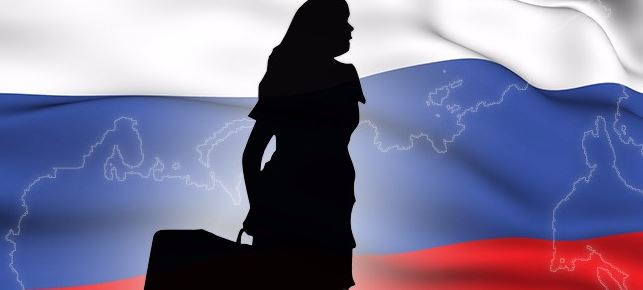“Russian World”: Russia’s Policy towards its Diaspora

This paper examines how the large Russian-speaking population outside Russia has been ideologically constructed and politically instrumentalized by the Kremlin’s leadership.

It traces the evolution of the diaspora policies and visions from the early 1990s to the present, and argues that the understanding of Russian “compatriots abroad” has never been the same; rather, it travelled a long road from revanchist irredentism of the red-brown opposition in the 1990s, to the moderately liberal pragmatism of the early 2000s, to the confrontational instrumentalization of Russian “compatriots” as a lever of Russia’s soft power in the late 2000s, and, finally, back to the even more confrontational, irredentist and isolationist visions after the Ukrainian crisis of 2014.
Mikhail Suslov is an assistant professor of Russian history and politics at the University of Copenhagen. His research focuses on Russian intellectual history, conservative, right-wing and religiously-motivated political ideas, geopolitical ideologies and socio-political utopias.
Download the full analysis
This page contains only a summary of our work. If you would like to have access to all the information from our research on the subject, you can download the full version in PDF format.
“Russian World”: Russia’s Policy towards its Diaspora
Related centers and programs
Discover our other research centers and programsFind out more
Discover all our analysesThe Caspian Sea as an Emerging Energy Hub : Potentials and Limitations
This report analyzes the prospects of the Caspian Sea region — and its key actors except for Russia and Iran — becoming an important energy hub serving the needs of the European Union (EU).
The European Union's Strategic Test in Georgia
The political crisis brewing in Georgia is of an existential nature for the country. What is at stake is Georgia's future as a democratic and sovereign European nation (EU).
Commanders of Putin's Long War: Purged, Reshuffled and Disgruntled
The trend of reshuffling the Russian top military command in the course of a fast-evolving and far from successful war has progressed unevenly both across the Armed Forces’ structures and in time. The rationale for and timing of the abrupt cadre decisions made by Commander-in-Chief Putin often defy logical explanation, and the rare official clarifications are no more informative than the usual information blackout.
Russian Military Manpower After Two and a Half Years of War in Ukraine
In addition to a military victory in Ukraine, the Russian leadership is planning to build up sizable troop formations for a possible conflict with NATO in the Baltic region and the Kola Peninsula. In particular, current plans aim for the military manpower to grow by about 350,000, reaching a total of 1.5 million soldiers and commanders. In the context of the current conflict in Ukraine, this cannot be accomplished without a new wave of mass mobilization.









